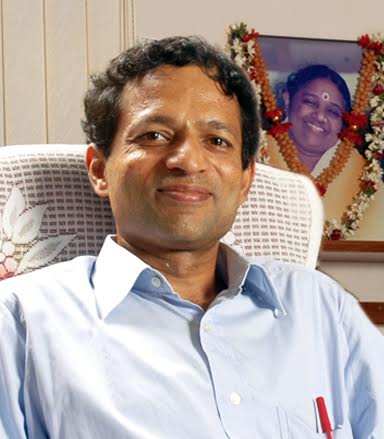Indian Universities need to become research-intensive to rank among world’s best – Dr. P Venkat Rangan, Vice Chancellor, Amrita University
New Delhi: Indian universities need to become research-intensive to climb the world rankings and emerge in the Top 100 global list in the next ten years, said Dr. P Venkat Rangan, Vice Chancellor of Amrita University, which was declared No. 1 Private University in the country in the latest NIRF Rankings released by the Government of India.
“Research is the key to creating excellence in Indian universities. It is essential for them to focus on not only high-end research but also on research for social benefit, to become crucial national assets and play a strategic role in developing the society, economy and environment. This is the formula which we have successfully followed to emerge as India’s No. 1 private university in just 14 years since our inception,” Dr. P Venkat Rangan said.
Amrita University has more than 30 state-of-the-art labs conducting research in a host of areas, from cybersecurity and robotics to molecular medicine and sanitation biotechnology. Together, these have yielded more than 12,000 journal publications, 300 awards, 125 books and 250 book chapters. Amrita University has filed more than 100 patents in recent years, many of them granted in the US.
“Research generates new knowledge and technologies that drive the future. It creates professional excellence in faculty and students. There are more than 200 research universities in the US. In India, they can be counted on one’s finger tips. With the rise of the global knowledge economy, there are many opportunities among universities for collaboration in research. The Government now needs to empower Indian private universities as they have begun to make significant contributions in terms of quality and quantity. Over the years, many of them have exceeded expectations in their research caliber, relevance and dedication to solving challenges facing our society as well as the needs of a new emergent India. The government needs to place full confidence in them and actively promote research at their campuses by making available significant funding opportunities,” said Dr. P Venkat Rangan.
He added: “In most advanced nations, private universities are major shareholders in, and contributors to, the exceptional quality of their higher education. If India too is to build a world-class higher education system, the government should seriously look at freeing top private universities from excessive regulatory control, and create a level funding playing field. This is essential if they have to compete, innovate and contribute to meeting the challenges of Make in India, and adapt to the needs of a rapidly growing, information-centric population.”

